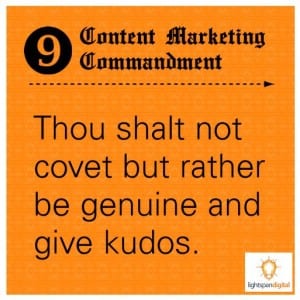 Working in the field of social media, I am always asked my opinion on the significance of Klout. Not just from my clients, but also from my peers. Initially, this inquiry elicits a hearty chuckle from me before I embark on a long, serious discussion about the importance of Klout versus clout.
Working in the field of social media, I am always asked my opinion on the significance of Klout. Not just from my clients, but also from my peers. Initially, this inquiry elicits a hearty chuckle from me before I embark on a long, serious discussion about the importance of Klout versus clout.
What Is Klout?
First to the uninitiated, your Klout score measures your influence in the social media world and among other social media users and can be found on Klout.com. After you connect your various social networks to the service, the site produces a number from 1 to 100; the higher the number on the scale, the greater the user’s reach and impact with their followers.
Another benefit of the site is that Klout and its partners give you access to swag and a certain amount of prestige if you obtain a higher score.
Though the real intention of the Klout score is to assign people social media influence scores and to identify influencers that will help convey your messages and promote your branding, many argue with its accuracy and its true importance.
Does Klout Merely Reflect Popularity?
To me, the frenzy caused by Klout scores reminds me of high school popularity. The need to compare yourself to other influencers, a feature you can find on Klout.com, diverts us from focusing on what’s really important. After comparing yourself to friends, family and Justin Beiber, not only do you question Klout’s algorithm, but ultimately you start to question yourself: “Why isn’t my score higher?” “There is NO way her score is higher than mine!” “How is Justin Beiber really THAT influential!?” We become obsessed with a number and forget the people behind the digits.
I’m not alone in my observation of the misplaced importance on Klout scores. Devan Perine, from enMast, describes 8 surefire ways to boost your Klout Score. In this tongue-in-cheek tips roundup, she advises folks to post more pictures of pets and babies. Pictures from recent travels even local discoveries seem to merit influence. She also writes about how the overuse of hashtags can help you climb toward the coveted high Klout score.
Are We Really Influencers?
After the snickering is done, it’s important to acknowledge that although social influence is significant for identifying major players in a particular market, reputation is not the true value found in relationships. Sure you can be in with the “in” crowd of high Klout scores but does that help you to accomplish your goals? Not necessarily. Are images of children and kittens going to get you the audience you seek? Less likely. Can you build a stronger, more helpful business relationship with a person without comparing Klout scores? Absolutely.
What’s Really Important?
 Use that “c” in clout to communicate rather than focusing on improving a rating. When you genuinely communicate, your “Klout” among your social sphere will be genuine. And the relationships you forge will be genuine. A reputation built in this fashion does more than any one number could ever do.
Use that “c” in clout to communicate rather than focusing on improving a rating. When you genuinely communicate, your “Klout” among your social sphere will be genuine. And the relationships you forge will be genuine. A reputation built in this fashion does more than any one number could ever do.
This doesn’t mean you can’t share photos and use hashtags. You can still participate in many of the common social sharing methods that influencer-getters employ. But instead of focusing on popularity, you’ll act strategically and with purpose. (Check out the Content Marketing Bible for other guiding tenants, such as Commandment #9: “Thou shalt not covet but rather be genuine and give kudos.”)
Here are some ideas you can try:
- When posting a picture of your recent visit to the farmer’s market, entice an exchange of ideas by asking a question in the post or tweet.
- If you post a picture of a kitten, be genuine in your adoration of your furry friend. Your audience appreciates you sharing part of yourself and will be willing to share themselves with you as well.
- Have real conversations.
- And don’t just share with high ranking Klout users but others who, in their own way, may have the pull and influence that surprises you.

Leave a Reply